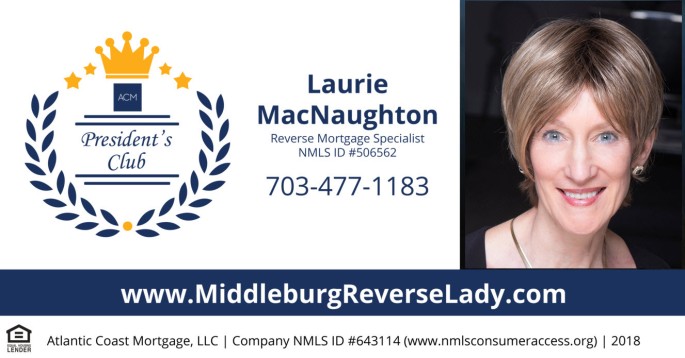Laurie MacNaughton © 2023
Recently I heard a heartbreaking story from a friend: a couple years back her 55-year-old cousin lost his job, and shortly thereafter had a stroke. He spent well over a year in a rehab facility, and during his recovery he fell behind on bills, including his property taxes. By the time I was hearing this story, the county had foreclosed on his home due to tax delinquencies.
Why did he lose his home? Because he lost his job and then had a stroke.
This morning I spoke with an attorney whose advanced-elderly client is losing her home to a tax foreclosure after not paying her property taxes for the past two years. Turns out, the homeowner has a reverse mortgage.
Why is her home in foreclosure? In many people’s eyes it’s because she has a reverse mortgage.
If someone loses his job and then loses his home, we blame the circumstances. If someone has a reverse mortgage and loses his home, we blame the mortgage.
Wait, what? How did we get here?
The entire story of how we got here is quite interesting, but it’s also too long to cover in its entirety in one column. The overview is this: in their earliest form, reverse mortgages had little federal oversight and few regulations, and by all accounts there was some pretty crazy stuff going on. Even with the modern reverse mortgage, until 2014 the qualifications were simply age and equity: if a homeowner was 62 and had enough equity, he or she could qualify. There was no financial assessment to verify the homeowner could pay property taxes and homeowner’s insurance on an ongoing basis.
This simple addition to the qualification process has gone a long way toward preventing problems.
So how is it that in 2023 an elderly woman with a reverse mortgage, living in Arlington, Virginia may lose her home?
She’s losing her home for this reason: she didn’t pay her property taxes. Just because she can afford to pay them it doesn’t mean she can remember to pay them. Even if she had no mortgage whatsoever, if she didn’t pay her taxes she would still be in foreclosure.
A couple points here. First, most Virginia tax jurisdictions offer property tax relief programs for older homeowners. Many homeowners are unaware of this, and it’s a shame – because tax relief can be a huge financial boost. Second, most tax jurisdictions allow taxes to be set up as an automatic, recurring payment. For some of our oldest homeowners interested in this option, this may mean they need a helping hand setting up recurring payments. My own father, a truly brilliant aerospace engineer, never did master the personal computer. My mother was quite good on the computer, but she wasn’t in charge of finances.
The third thing I want to point out is this: when homeowners with so-called “forward” mortgages lose their homes, the losses are spread over all age groups and the causes vary. When homeowners with reverse mortgages lose their homes, all the homeowners are nearing retirement or have already retired. When there is one demographic represented, it can be easy to blame the type of mortgage, even when the cause overwhelmingly is a failure to pay property taxes. Taxes are taxes, and they must be paid – unless homeowners are property tax exempt. It’s the classic “if you pay you stay; if you don’t, you won’t.”
One last thing of note is that it is now possible with a reverse mortgage to do something called a “Life Expectancy Set-Aside,” or LESA, whereby property taxes and/or homeowner’s insurance are withheld, and then paid by the loan servicer when due. A LESA may be required in cases where there is a spotty tax or homeowner’s insurance payment history. But some homeowners opt for a LESA simply out of convenience.
If you have aging loved ones in your life, please ask them if they would appreciate help setting up recurring property tax payments. Be mindful that the ability to keep track of dates, deadlines, and requirements may diminish as we age, and that the “money talk” may be one you need to have with loved ones on an annual basis. And check to see if they qualify for tax relief.
If you’re an aging homeowner and would like to know more about property tax relief programs, call your county’s Commissioner of the Revenue. Bank branch personnel and local librarians can also look up your county’s property tax exemption guidelines, and many will print the application forms.
Long gone are the days most of us are looking at funding retirement. Discussions now must be about how we’ll fund longevity – an altogether different proposition. If you’re having money issues, it’s better by far to ask for help earlier than later.
If you would like more information about the role a reverse mortgage can play in your long-range financial planning, or in the life of one you love, give me a call. I always love hearing from you.








